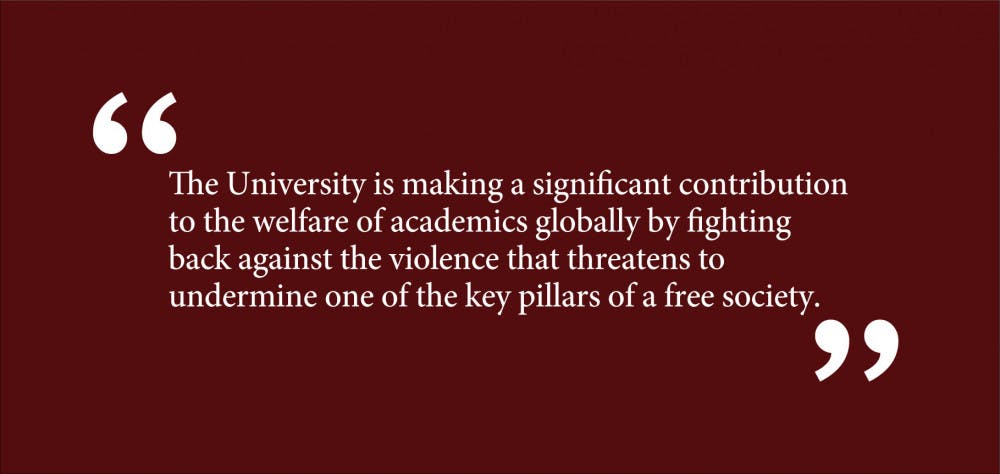In the past few years, students, academics and professors at institutions of higher learning around the world have increasingly become targets of violent attacks and unlawful imprisonment, simply for expressing ideas that run counter to the ideologies of extremist groups and authoritarian regimes in their home countries. On Sept. 6, the University became a founding member of the New University in Exile Consortium, promising to host and support endangered scholars who currently face threats to their rights and livelihoods. In doing so, the University has commendably declared its commitment to preserving “a spirit of free inquiry” and has made a definitive statement to the world that academic freedom is critical for the preservation of free societies, particularly in this moment in history.
First established in 1933 as the University in Exile by the New School for Social Research, the Consortium was originally formed to save the lives of intellectuals and scholars who were purged from their universities and persecuted by fascists and Nazis in Europe. Today, however, the perils facing academics have assumed new, complicated forms and taken root all over the world, in places like Turkey, Syria, Libya and Iraq. The new Consortium, which consists of 11 universities throughout the United States, seeks to bring public awareness to these emergent threats to institutions of higher education, and to support persecuted, displaced scholars by providing a safe haven for them. The Consortium will also bring these scholars together for workshops, seminars and conferences.
Through its membership in the Consortium, the University makes a significant contribution to the global welfare of academics by fighting back against the violence that threatens to undermine one of the key pillars of a free society — the freedom to think, explore and disseminate ideas. Many scholars are targeted specifically for the types of work they do and the initiatives they lead, many of which are vital to the advancement of human rights. By inviting these scholars onto our campus, we help ensure that in the immediate future they are able to continue doing important work, and that their lives and the lives of their families are not endangered because of it.
Inviting endangered scholars onto campus will also advance and better enable the pursuit of knowledge conducted here. Through the courses they teach and research they conduct on campus, these scholars will enrich intellectual life here, and afford students rare opportunities to think critically about a myriad of important social and academic issues. They will likely bring new cultural and social awareness to the University that will enhance our community’s understanding of the world in which we are situated — something that can benefit every student, no matter their concentration or degree program.
The University has already been hosting endangered scholars since 2015, so joining the New University in Exile Consortium is an excellent way for Brown to formalize its commitment to protecting the globe’s intellectual community from assaults on institutions of higher education. We hope that, going forward, the University will continue to marshall its influence as an elite institution to support and safeguard higher education and intellectual inquiry throughout the world.
Editorials are written by The Herald’s editorial page board: Anuj Krishnamurthy ’19, Rhaime Kim ’20, Grace Layer ’20, Mark Liang ’19 and Krista Stapleford ’21. Please send responses to this opinion to letters@browndailyherald.com and op-eds to opinions@browndailyherald.com.





